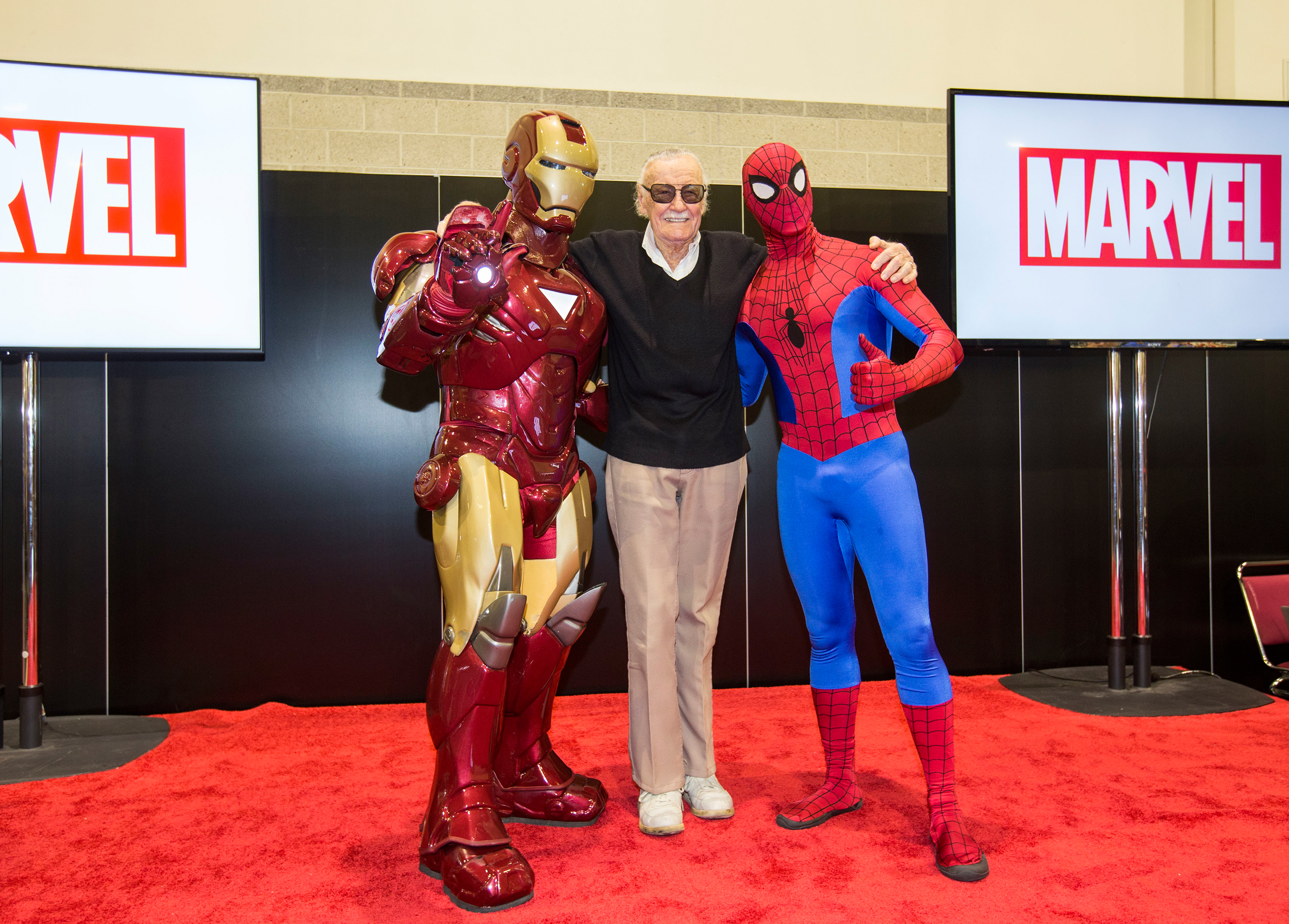"Your comics are some of the best Indie comics I've read in 20 years but don (sic) why you tell folk you earn nothing from them?" The gentleman concerned seemed to think my "comics do not sell" line was a trick to get people to buy my comics. Firstly, any appeal I have made on CBO in the last 20 years has received zero response. Help fund CBO to keep it going? Zero response so the idea that I am going to write"Boo! Hoo0hoo! Me comics don't sell!" and people are going to rush out and buy them...that's fantasy.
Because my Print On demand (POD) company is in the United States what I "earn" is not based on any kind of reality. I have sold books worth over £100 (say $100+ US) and my cut is £36.00...now I am at the mercy of fluctuating exchange rates and bank charges. In the last week that £36.00 has gone down to £34.00 and yesterday £32.00. When I get this money it will be after I pay U.S. taxes on books sold there. So, if I am lucky, I may get £26.00 which means I have not earned anything.
I pencil, ink, letter, design the books and covers, scan and make pages acceptable (something DC and Marvel editors do not do as "It ain't my job!" To put a 24 pager onto the online store ready to buy (excluding POD problems) can involve two weeks work. That is unpaid work. I set prices as low as possible to encourage new readers and the idea was that if enough sold I might actually earn something.
Now, if you look at Image, DC or Marvel their editors get a paid wage and the boss certainly gets a nice juicy cut of the money. I do not get paid a penny until books sell and then, if I am working with someone else the funds are pushed in their direction. "According to Money.com you must be earning enuff (sic)" and, yes, if I were working for Marvel and DC I would be but this type of question shows the complete lack of understanding of Indie Comics because, in all honesty, Indie is not that far above the Small Press.
So what was the person referring to? On the 2nd November 2017 Money.com posted an article by Megan Leonhardt and it is worth checking out:https://money.com/how-much-you-can-earn-in-the-comic-book-industry-from-artist-to-ceo/ My comments come after.
How Much You Can Earn in the Comic Book Industry — From Artist to CEO
Marvel and DC Comics are once again facing off in an epic box-office duel this month, with the release of Thor: Ragnarok and Justice League — two superhero films that, of course, have their roots in the comic book industry. Print isn’t dead to this world — the industry makes $800 million-a-year annually and employs tens of thousands to do so.
So how do you get started in this type of career? And more importantly, what does it pay?
Like any career in the arts, you can get started in the industry by going to school to and majoring in something that translates well into this world, like animation, sequential art, or illustration. Marvel artist Irene Strychalski recently told attendees of New York Comic Con she majored in sequential art and minored in animation at Savannah College of Art and Design. Other schools that comic book artists seem to gravitate towards include Ringling College of Art and Design and Rhode Island School of Design. However, if you don’t want the college experience, the Kubert School is a trade school in Dover, N.J. that offers a three-year training program.
But for every successful comic book writer or illustrator who acquired a formal education, there are many more who broke into the industry by themselves. It’s an industry that lends itself to freelancers and those with raw talent. Javier Garron, the Marvel artist behind Secret Warriors, worked as an architect before switching to comics. “Afternoons, evenings, nights and weekends were comics,” Garron says of his 10-year odyssey to break through in the industry.
Here’s what you can truly expect to make in a comic book career.
Comic Book Creator

For many comic hopefuls, the ultimate achievement is to create an entire comic book franchise. And it it becomes very lucrative if you retain the ownership rights to that work. In many cases, you’ll make far more than the executive salaries at the biggest comic book publishers. Stan Lee, perhaps the most famous comic book writer and illustrator, is worth an estimated $40 million, according to Wealth-X. About 90% of that is held in cash and other liquid investments, while the remaining 10% accounts for his home in West Hollywood and his stake in POW! Entertainment, a production company that was behind projects like reality television series Who Wants to Be a Superhero?
More recently, The Walking Dead creator Robert Kirkman published his zombie-apocalypse adventure through Image Comics, which allows creators to retain the right to their work. Kirkman eventually became a partner at Image Comics and founded Skybound Entertainment, which produces the ongoing Walking Dead comics, as well as other movie and television projects including Invincible and Outcast. He is worth about $20 million, according to CelebrityNetWorth.com.
Editor
Comic books, particularly established franchises, are quite the production. So you need someone to corral all the artists and writers on the book. That’s where the editor comes in. This is the person who quarterbacks the process, everything from reminding writers when the script is overdue, checking the art against the script to make sure the storytelling syncs, and proofreading the pages as they are completed. An associate editor makes between $38,000 and $41,000 at Marvel, according to Glassdoor. Meanwhile, a more senior editor at DC Comics can make up to $84,000.
Comic Book Artist
The median comic book artist salary is $36,500, according to Payscale. But it’s rare for a comic book artist to land a salaried position and it’s far more common for these gigs to be project-based. That means you need to be efficient. “Keep in mind that while it’s usually considered that a comic artist should be able to do a page every day, that is rarely true,” says Reilly Brown, an artist who has drawn various comics for Marvel, including The Amazing Spider-Man. “Most guys can only do three to four pages per week, and most comic artists work between 10-16 hours a day.”
Compensation can range dramatically depending on both experience and the publisher. For example, it’s not uncommon for new artists to make $2,000 for a 100-page book. Depending on fast the artist can work, that’s only about $2.50 an hour for someone who spends about eight hours working on each page. However, experienced artists who design and execute the cover art can command much higher rates, up to $600 per page at some publishers.
At many of the bigger comic book companies, the art on the page is paid by the type of job—and sometimes multiple artists will be hired to do each piece.
Penciller
This person is the one who takes the story and gives it life, sketching out the scenes in pencil and crafting the basic outline of the landscape and the characters within it. Starting rates for these artists usually range from $160 to $260 per page at the big comic publishers like Marvel and DC.
Inker

This illustrator is given the task of adding depth and shading to the basic outlines created by a penciller. Usually this gig pays $75 to $100 per page.
Colorist
These are the folks who give Spiderman his iconic blue and red look—adding in the color to the pen & ink designs on the page. These artists can earn anywhere between $20 and $121 per page, according to a 2016 survey by FairPageRates.com of 100 comic professionals.
Letterer

This is the person who uses a variety of fonts and sometimes even hand-drawn calligraphy to create everything in the word balloons and illustrating the sound effects. Typically this job runs between $10 and $25 per page, according to the FairPageRates survey. “I was lettering for a long time, that’s how I paid my bills,” Ed Brisson, writer for Iron Fist and an Old Man Logan, told New York Comic Con attendees last month.
Writer
If you can get a salary gig, it typically pays $55, 037, according to Glassdoor. However, many times, these jobs are also paid on a project basis. Many of the publishers break up the creation of a title in an established series, hiring writers to lay out the plot and another the script. A writer can earn between $20 and $100 for an entire script outline at the bigger publishers, according to the FairPageRates survey. After an outline is in place, writers will be hired to add all of the dialogue and story to each page. At Marvel, for example, you typically earn between $80 and $100 for this job, according to artists Money interviewed.
CEO

The chief executive at a comic book company can exist in many forms, especially since DC and Marvel now operate under the management of Warner Bros. and Disney, respectively. Yet arguably the highest paid comic book executive is Marvel Entertainment’s CEO, Isaac Perlmutter. He’s worth $3.9 billion, according to Forbes annual ranking. He helped shepherd Marvel through bankruptcy in 1996 and eventually led its $4 billion sale to Disney in 2009. Prior to the sale, his annual salary was $750,000, according to regulatory filings. That’s a hefty salary for making sure the Amazing Spider-Man continues to be amazing to readers.
One way CEOs diversify their portfolios is by expanding their comic brand into toy lines. Todd McFarlane, one of the founders and current partners of Image Comics also has a toy business: McFarlane Toys, which produces figurines for several comic book and TV franchises including South Park, Rick & Morty, Spawn and The Walking Dead. Reportedly worth around $300 million, McFarlane made a name for himself by illustrating the first appearance of Venom in the The Amazing Spider-Man comics for Marvel. He went on to create Image Comics with five other artist in 1992 and has retained autonomy over his own projects.
fin
The problem is that I work for myself and the main reason for this was the outright -accepted as the norm- crooked nature of comics and particularly those in the UK. I did a few Action Force scripts for Marvel UK back in the day thatwere used with someone else's name on them. For Fleetway-Egmont I was cheated out of £5,000+ in payments and and the editor I worked for outrightly told me that his pal was going to use my titles for a series of stories for himself and, you know, "f*** you!" I knew npone of this was new because a certain Fleetway/IPC editor used to employ young, less talented newcomers to work on his comic because he paid them less and he pocketed a nice chunk of cash (everyone -everyone so don't suddenly say "never heard of this!"- who was in comics knew this was going on).
One idea that was stolen by an editor at Fleetway I was told by Gil Page (then Managing Editor) to discuss with the editor involved on a visit to the offices. I did. the editor fumbled around and then claimed someone else had the idea as "it must have been in the creative ether". Utter bull-shit because I haddiscussed the idea with this editor months before and he still had the proposal next to his desk when I talked to him about idea theft.
Another problem is that one strip in particular was given to a newcomer and it was just three pages in length. I wasn't even told when it was being published but went straight past it until someone said "Oh, that's one of yours?" I checked. Title -yes. After that the artist had totally ignored the entire script and drew what he wanted but kept my ending -which now made no sense. And he earned 4 times what I got as scripter to boot.
My experiences with U.S. companies in the 1980s/1990s was not much better and there was no positive experiences to take from any of them. I did learn that a contract from a U.S. publisher means absolutely nothing and that they lie and cheat like everyone else. One comics news journal I was made editor of I got a proof copy of 'my' first issue and found several articles had been added; one was tantamount to defammation of character of an comics editor and two others were just fake stories based on (untrue) rumours. I was told I had no choice of what went into the magazine as the publisher decided that (yet a disclaimer put any responsibility onto me). I explained the purpose and job of an editor and a publisher and was told "You just put your name to what we publish" so I said "No thank you" and quit. Onearticle actually strongly suggested one Indie artist/publisher was "fond of young boys". F*** that.
The big problem is that honesty is not a good thing in comics! Also, lowering prices to encourage readers is something I am thinking of reversing and it is why I have currently put publishing new titles on hold -there are already 179 at the online store.
Despite what Money.com might say, comics is not a good way to earn a living and this is why I regularly post sales on CBO -something you are not going to find other publishers doing willingly.
That lakeside chalet in Germany is a loooooooooooong way off!


One thing I never understood. Who on earth in the name of sanity would design a costume where you had to draw all those web-lines on a costume - Ditko, are you up there . . somewhere? . . every single damn panel! OCD or what? AARGH!
ReplyDelete